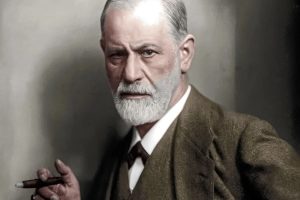
(Tesfaye Gessesse’s Foundation inaugural ceremony)
BY NAOL GIRMA
Born on 27 September 1937 in a small village called Guro Gutu in Hararghe in eastern part of Ethiopia, Tesfaye was the sole child for his parents. Sadly, he lost his mother and father when he was eight months and two years old, respectively. For years, the tenants who rented land from his parents raised him. At the age of seven, he came to Addis Ababa and started to live with his uncle, his mother’s elder sister.
Completing church education, which includes reading psalms and prayer books, Tesfaye joined the thenTeferi Mekonnen School at the age of eight and started his formal education. After completing his secondary education, Tesfaye had enrolled at the University of Addis Ababa’s Law Faculty where he graduated in 1958. While there, upon watching him superbly play at a drama staged by another prominent playwright, Kebede Michael, Emperor Haile Selassie advised the young Tesfaye to study theatre and arranged for his scholarship at Northwestern University’s theater school, in Evanston, Illinois. Returning in 1961, Tesfaye was “a part of a small group of reformers, who in the 1960s turned theatre from an art form aimed at propagandizing for the aristocracy into a means for examining the political and social situation in Ethiopia.”
A few years later, Tesfaye moved to Haile Selassie I University and helped to establish the Creative Arts Centre under the initiative of the American national Philip Caplan who came to the country on a Fulbright scholarship. The two reportedly met in 1962 to co-direct a play and they hit on the idea of starting the drama section at the young Haile Selassie I University and establish a center for experimental drama and actor training. Under the auspices of the Centre, Tesfaye and Caplan had directed the premiere of plays by the young playwrights including Tsegaye Gebre Medhin and Mengistu Lemma. The center at the time was a kind of drama school where the noted actors Wogayehu Negatu and Debebe Eshetu and a talented director Abate Mekuria, got their preliminary training and experience. Solomon Deressa, Gebre Kristos Desta, Haile Gerima, Berhane Meskel Reda were also among the active visitors to the Centre. Tesfaye acted as the Centre’s director for four years and he nurtured countless future stars.
He was able to listen to what Martin Luther King Junior , the American black people rights activist, had to say in his speech. The white supremacy of the time was also a living testimony and then he was very motivated when he returned back to his home country. Tesfaye is credited for having worked actively in upgrading the physical infrastructure of the theatre. He extended the stage as well as having the auditorium made sloping. He also set up a lighting booth for the stage at the back of the theatre among others.
He has done a lot in the field of theatre. By preparing and presenting theater in a modern way, he tried a lot to make it familiar and popular among the society. Assistant Professor Tesfaye was a playwright, poet, and translator, author of short and long novels, actor, theater producer and theater art teacher.
On the inaugural ceremony of Assistant Prof. Tesfaye Gessesse Foundation EPAs journalist spoke with the multi-disciplinary artist and his colleagues to learn about his contribution for the Ethiopian art.
The eldest son of artist Tesfaye Gessesse and director of the foundation Gessesse Tesfaye who has been in the process of expanding the scope and objectives of the foundation told Ethiopian Press Agency that Tesfaye was a pioneer who truly developed modern Ethiopian theatre and managed to produce memorable theatre brands with brilliance and charm, at a time when the theatre was flourishing as the most vital sector of the arts in Ethiopia.
It has been days since the establishment of the Tesfaye Gesese Foundation, led by his son, Gessese Tesfaye Gessese, said that on the day of the inauguration of the foundation, we had the opportunity to call the artists who had left the artist’s footprints to testify and express their feelings about the artist. He also said that remembering the past is very essential for the future. When giant artists pass away, their memory is remembered and a permanent memorial is built for them. .
There is a gap in building a permanent institution for the artists, apart from making a temporary memorial when the heroes of the country who were able to leave a lot of mark in Ethiopia. Other artist families should take lessons from Artist Tesfaye Foundation and Autobiography. Gessese also said that a public library will be built under the name of associate professor Tesfaye Gesese. He traveled great distances to ensure that his father was not forgotten whenever he got the chance.
According to what his close colleagues on the event said, he does not have time to look at the bad things but the good things of life. Although he did not receive any awards for his contribution at various times, he consecrated his time, money and life for wisdom without entertaining ill feelings that no one recognized me for my work. He was able to manage the country’s biggest theaters, the National Theater. There was a lot to be said about associate professor Tesfaye Gesese, they said.
Tesfaye, the first Ethiopian to earn an M.A. degree in Theatre Arts, had written and successfully produced several plays. Among his plays were Father and Sons, the absurdist Iqaw (The thing), Tehaddiso (Renaissance), Yeshi, Cherchez Les femmes, and Ferdu Lenaninte (The judgment is for you)
On the occasion head of Addis Ababa Culture and Tourism Bureau, Dr. Hirut Kasa, expressed words of appreciation about associate professor Tesfaye Gesese. The ephemeralness of Artist Tesfaye and his likes will be confined to the flesh. Because their works will be passed down to generations and make them remembered for many years. Transcending one’s era through one’s brainchild was an easy task for artist Tesfaye. He is rich of works that go beyond the span of his earthly existence. Her office recognizes that he is a man of wisdom who can be exemplary to many.
Tesfaye’s luminary profile extends beyond acting, directing and leading in theatre. His involvement in the establishment of the Addis Ababa University Cultural Centre in 1963 as well as the Theatre Arts Department in 1978 was of paramount significance.
At the inaugural event, Prof. Mesfin Araya Commissioner of Ethiopian National Dialogue chief Commission also explained that art plays a very significant role in peace building. It is very important to focus on the power of art in bridging the gaps in understanding the challenges that our country is currently facing.
On the occasion the noted Artist Teferi Alemu testified that Tesfaye was not fearful penning down his outlooks, directing dramas and acting in plays of great significance, but many of them were greeted with cold shoulders. “Once, while he was a manager of a theatre house, he increased salary for the artists of his own will to encourage the poorly paid artists and to uphold the profession,”Teferi told . “Consequently, all his good deeds put him behind bars all the times, suffer disciplinary measures and constantly put him under pressure. All these are sacrifices he paid for the betterment of the profession.” Six months later, he was released and appointed as the director of the Ethiopian National Theatre. It was around then that he staged one of his well-received plays, Tahadisso (Renaissance). His attempt to improve the financial and working conditions of artists ultimately led to his termination of his post in 1983.
In 1989, he became chairman of the Theatre Arts Department at Addis Ababa University but he was dismissed and incarcerated for a short period when the military government was overthrown.
Tesfaye led a radical change in the form and content of the Ethiopian national drama in the early 1960s. Tesfaye had directed and starred in multiple plays, including in Tsegaye Gebremedhin’s adaptations of Shakespeare’s Hamlet. He translated a brief sketch of the lives of the Sufi mystic Omar Khayyam and his Rubaiyat.
His numerous accomplishments as a cultural programs presenter, however, are less known. Tesfaye used to host cultural programs at Radio Ethiopia and the Ethiopian Broadcasting Service (radio and television) in the early 1970s.
Tesfaye Abebe, a veteran artist said that “Tesfaye is a gentle and decent human being. It was always a pleasure to meet up with him and share good times,”
Of course, many agree that Tesfaye is among the masterful who played a key role in transforming Ethiopian theatre by introducing modern approaches and techniques. Artist Tilahun Gugsa, a veteran actor who has been in the profession for many years, noted people like Tesfaye made theatre up to the standard. They as well allowed it to stand independently and become popular.
THE ETHIOPIAN HERALD WEDNESDAY 25 JANUARY 2023





